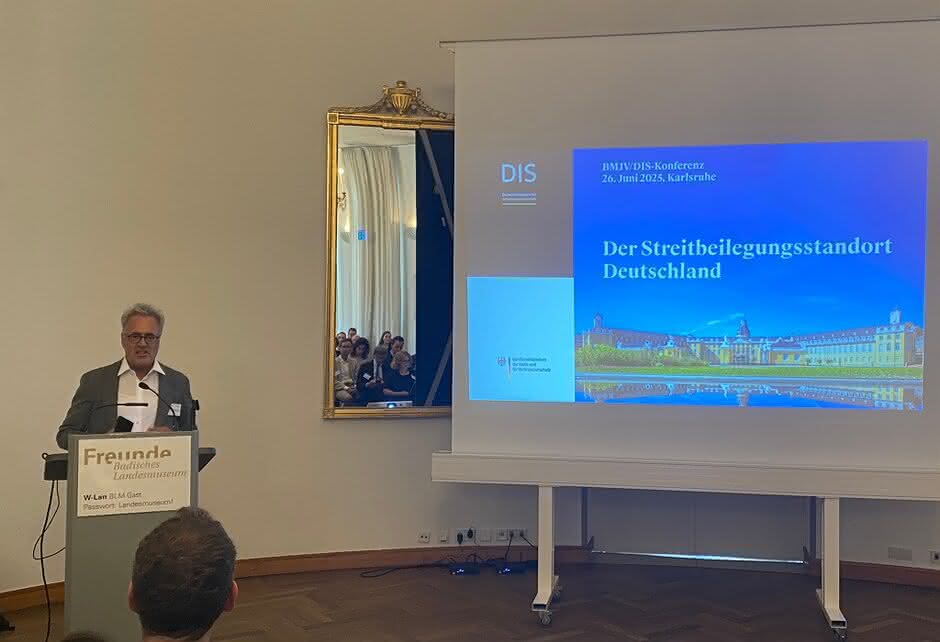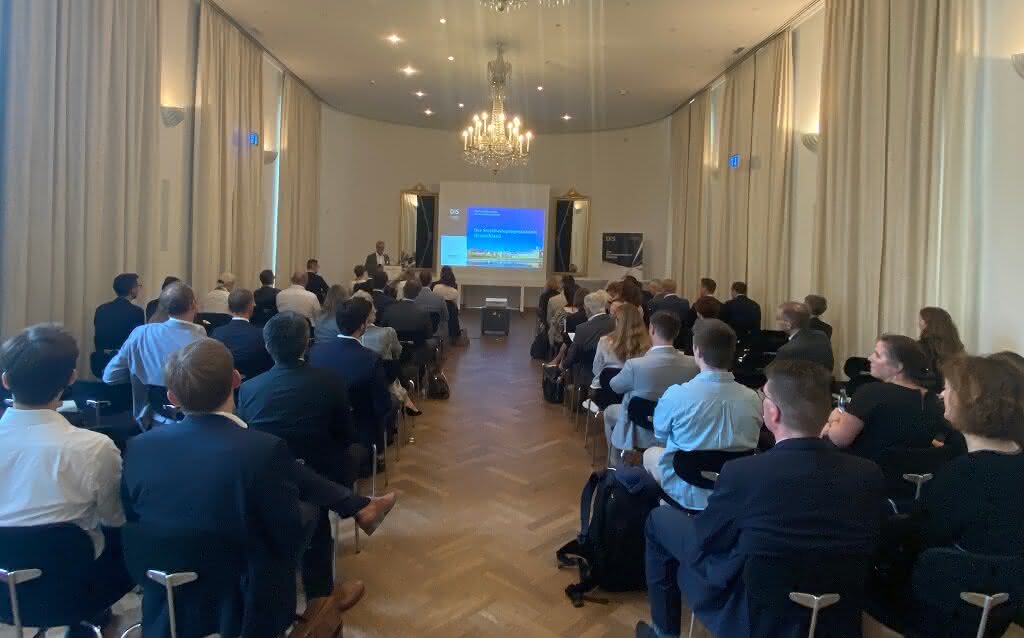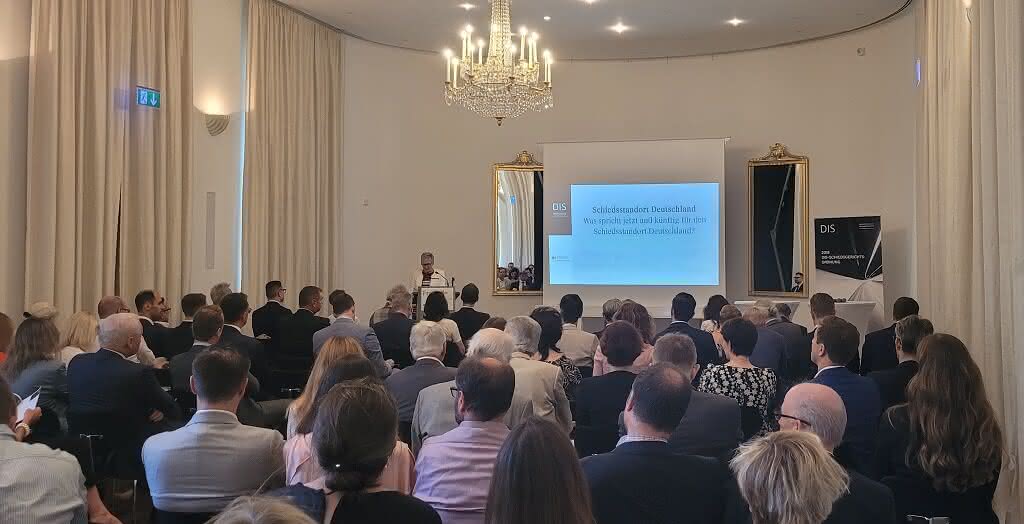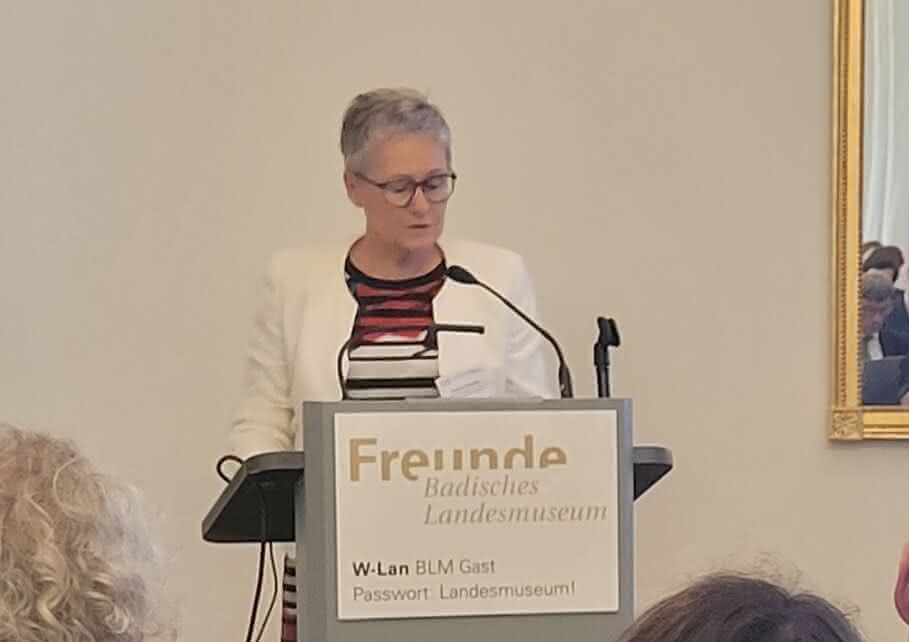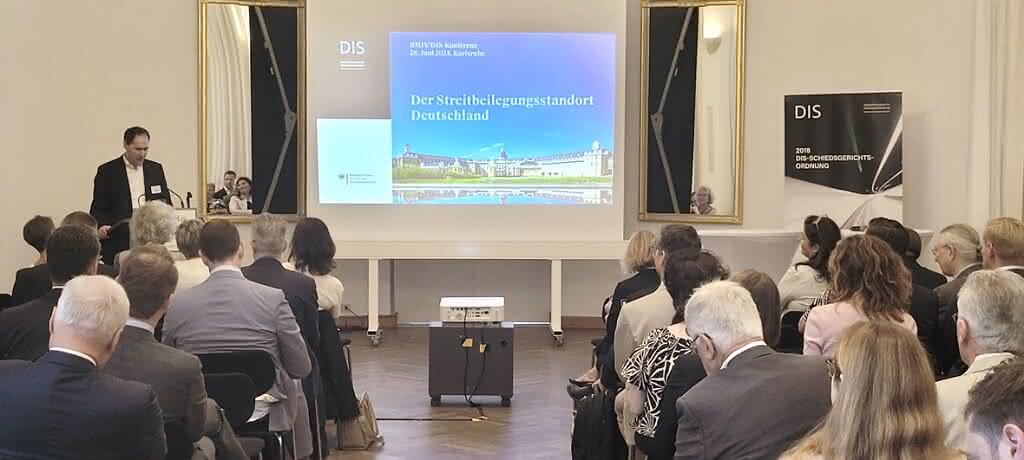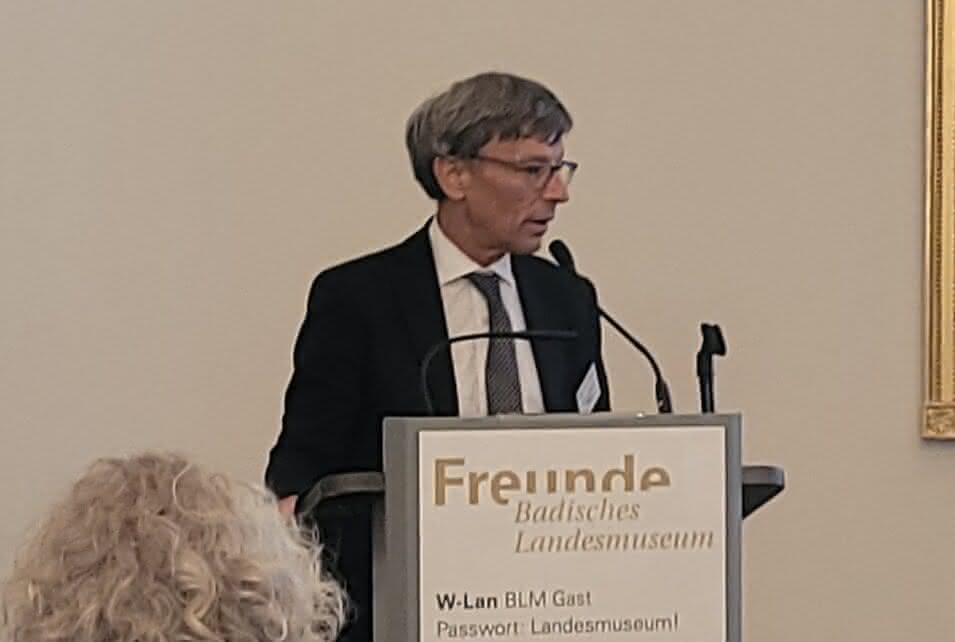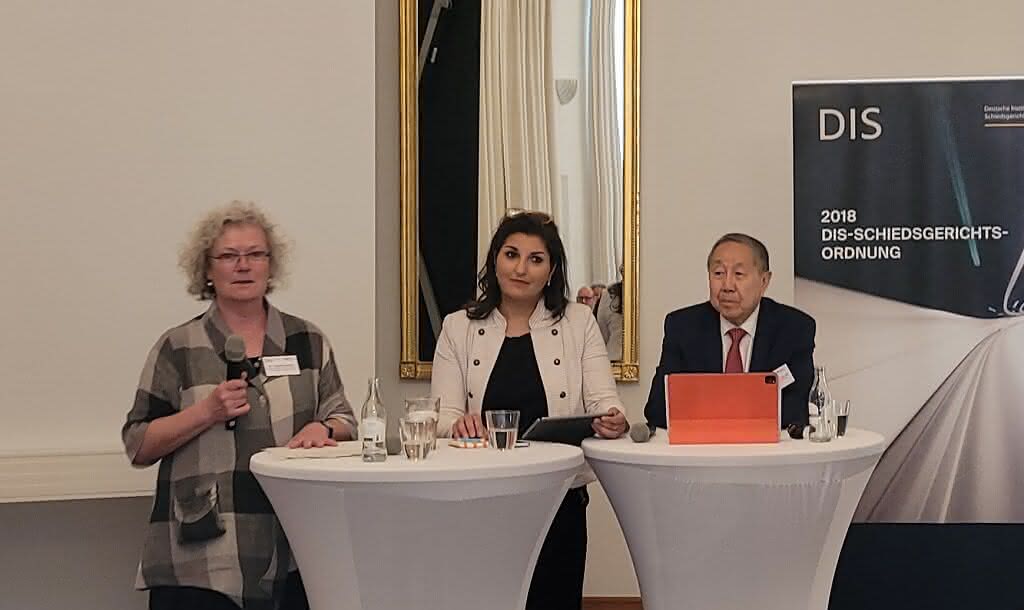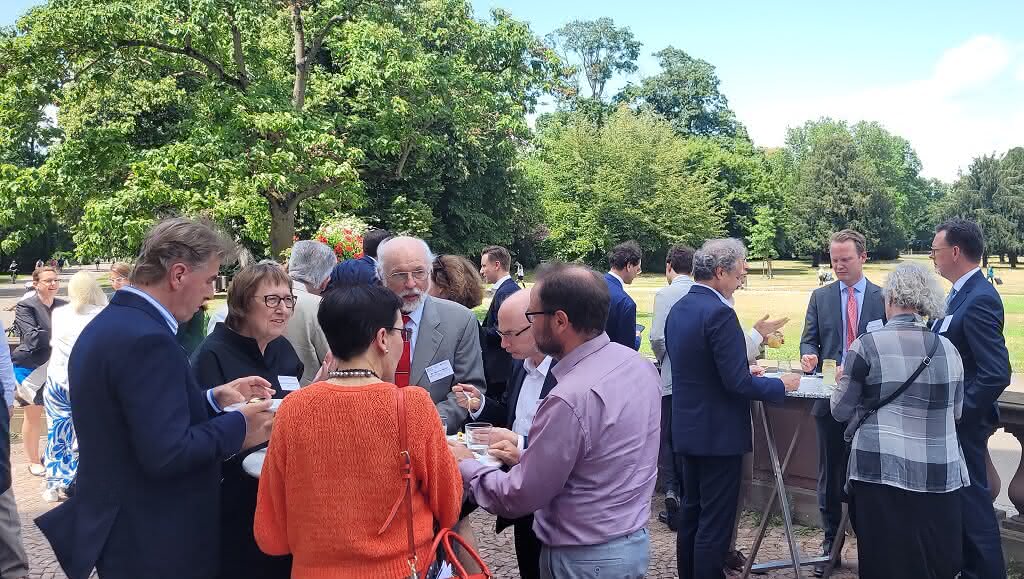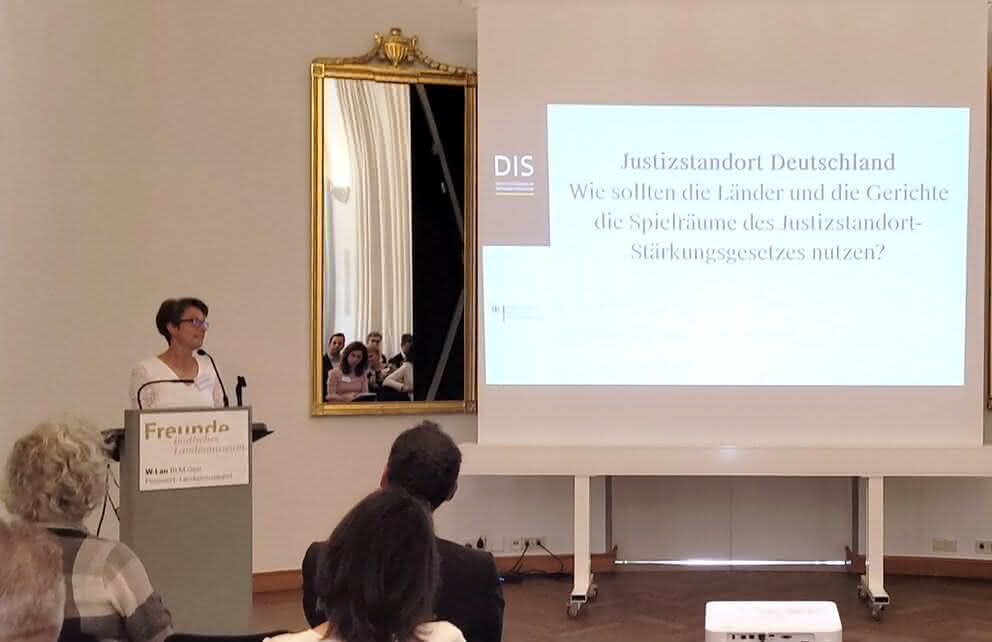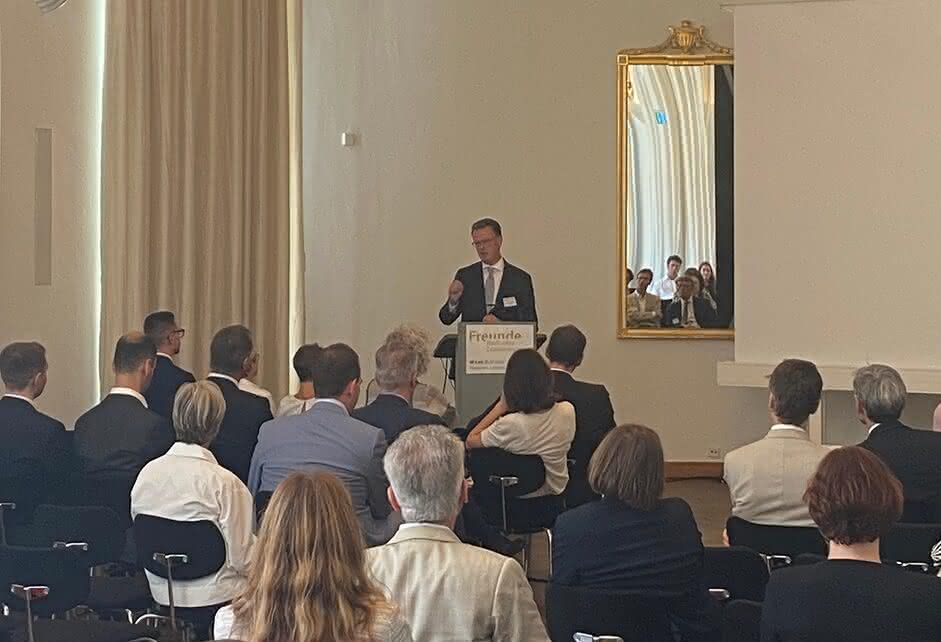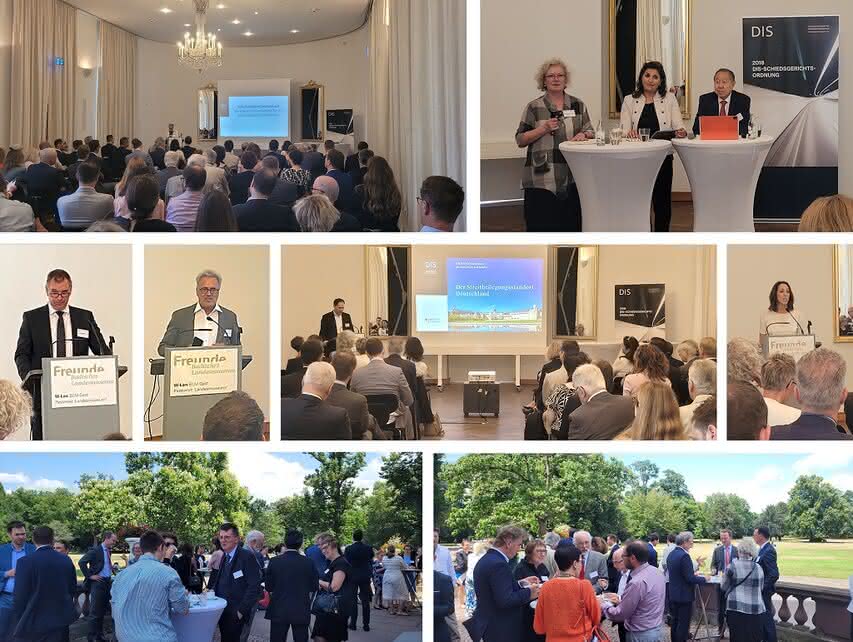
The German Ministry of Justice and Consumer Protection (BMJV) and the DIS hosted a joint conference in Karlsruhe on 26 June 2025 attended by numerous representatives of the judiciary and the arbitration community.
The overarching topic was the international competition that both courts and arbitral tribunal face. The courts have been facing competition since Germany’s Justizstandort-Stärkungsgesetz came into force on 1 April 2025. This Act has brought in German commercial courts and allows for English-language court proceedings. Arbitration did not pay sufficient attention to international competition for too long. There is still a long way to go in both areas, which arbitration and the judiciary should at least partly pursue together.

In his welcoming address, Thomas Koch, Chairman of the arbitration senate of the Federal Court of Justice, emphasized the importance of an arbitration-friendly review of arbitral awards by the judiciary. Ruth Schröder from the Federal Ministry of Justice and Consumer Protection referred to the two laws on strengthening the dispute resolution venue, while Reinmar Wolff from the DIS emphasized the need for concerted efforts in response to the competition.
The first part of the event focused on Germany as an arbitration venue. Moderated by Andrea Schulz, Nathalie Voser took the outside view of Germany and its standing in regard to competing arbitration venues, while Gerhard Wagner elaborated on what speaks for Germany as an arbitration venue now and in future and on areas where action is needed. There is still a long way to go to establish Germany as an attractive venue for genuinely international arbitral proceedings, especially due to lock-in effects in favor of established arbitration venues. Finally, Niuscha Bassiri and Christopher Lau gave hands-on recommendations for action for the DIS, BMJV and other stakeholders on what could be done for Germany as an arbitration venue, such as the necessity to focus on certain markets and systematically advertise there.
The second part of conference was dedicated to Commercial Courts. Under the moderation of Lutz Ohlendorf, Giesela Rühl explained that the German courts are also in competition and praised the commercial courts as a first step in the right direction. Dagmar Synatschke and Ulrike Willoughby provided insights into what the federal states and the courts are guided by when setting up commercial courts and what challenges exist. Thorsten Lieb emphasized that judicial dispute resolution should also be seen as part of foreign trade and ought to be promoted accordingly.
In the third part, which was moderated by Evgenia Peiffer, the President of the Higher Regional Court of Frankfurt Alexander Seitz explained that the judiciary and arbitration were not in cut-throat competition, but instead complemented each other in a meaningful way. Siegfried Elsing suggested creating a fundamental German brand in order to market Germany as a dispute resolution venue in a uniform manner.
In her closing remarks, Andrea Schulz reviewed the conference while Jan Schäfer, speaking on behalf of the DIS, called for a clear distinction between product development, marketing, and sales for dispute resolution services.
Reinmar Wolff
